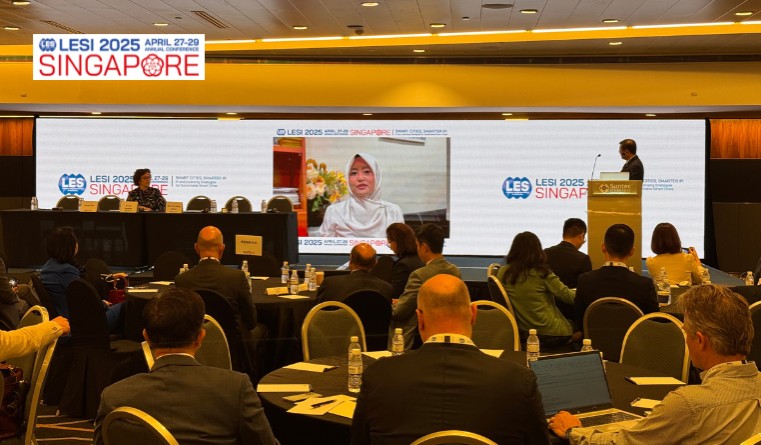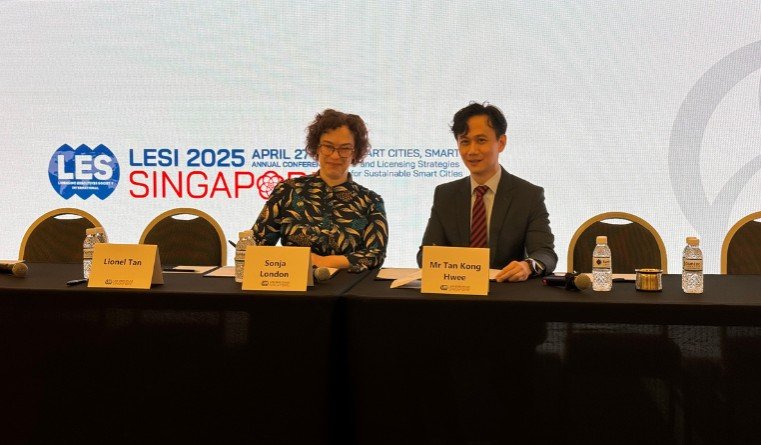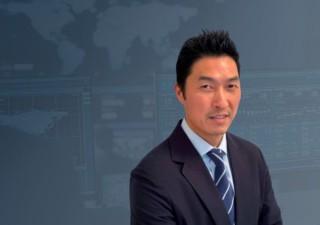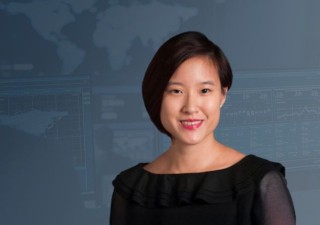LESI 2025 opens in Singapore
28 April 2025

“I hope that this event will inspire you. I hope it sparks a thought that may hopefully bring a significant change to innovation and to business and society,” said Lionel Tan, a partner at Rajah & Tann Singapore and president of LES Singapore, at the start of the Licensing Executive Society International (LESI) Annual Conference.
Highlighting that the LESI Annual Conference is in Singapore for the first time, Rahayu Mahzam, minister of state in the Ministry of Digital Development and Information and the Ministry of Health, said via video message that this reflects Singapore’s growing role as a global hub for technology, innovation and intellectual property development in Asia.
“When we started our smart nation journey in 2014, we envisioned a Singapore where technology would improve lives, create opportunities and build stronger communities. Over the past decade, this vision has taken shape through national digital platforms which show how digital infrastructure, when designed inclusively, becomes social infrastructure,” Mahzam said.

Sonja London, president of LESl, and Kong Hwee Tan, chief executive of IPOS, sign a memorandum of understanding
“In 2024, we launched Smart Nation 2.0, renewing our commitment to digital transformation. At its heart is the growth pillar, focusing on enabling businesses to thrive in a complex digital environment,” she continued. “We recognize that businesses need three essential elements: robust digital infrastructure, strong enterprise capabilities and vibrate innovation ecosystems. This recognition of business needs has shaped our implementation strategy. We have developed comprehensive approaches to support enterprises while building smart city capabilities.”
Mahzam highlighted two key initiatives that demonstrate Singapore’s commitment. First, she noted that the city-state was empowering enterprises through digital transformation, recognizing that businesses, especially small- and medium-sized enterprises (SMEs), are the backbone of the economy and huge drivers of innovation. To support them, Singapore has developed an open innovation platform, a dynamic marketplace for innovation where companies post real-world challenges and innovators – from startups to research labs – respond with practical solutions.
The platform has launched over 300 innovation challenges, resulting in hundreds of successful matches between companies and solution providers. Mahzam noted the open innovation platform has also facilitated numerous collaborations, leading to solutions that span various sectors, including retail, utilities and solution services, with these innovations solving real problems and creating new business opportunities.
The second initiative focuses on supporting business needs and fostering collaboration in smart cities. Mahzam said that smart cities are built not just on infrastructure but also on trust, openness and shared innovation, where businesses, researchers and planners co-develop smart city solutions. To develop a more sustainable and connected urban future, this initiative brought together startups, researchers and industry leaders to tackle pressing urban issues such as mobility, energy efficiency and environmental sustainability.
Mahzam stressed that this initiative encourages business collaboration, with startups partnering with traditional enterprises, research institutions co-developing with the private sector and global multinationals mentoring local entrepreneurs.
“Today, we mark another milestone with the signing of a memorandum of understanding (MOU) between the LESI and the Intellectual Property Office of Singapore (IPOS). This partnership will strengthen global collaboration in IP, supporting new licensing models, technology transfer and cross-border innovation partnerships,” she said. “As we look to the future, Singapore remains committed to empowering enterprises through digital transformation, advancing next-generation infrastructure and supporting innovation through trusted IP ecosystems.”
Following the MOU signing, Mahzam emphasized that “the challenges of the 21st century demand more than innovation – they demand collaboration, grounded with trust and enabled by thoughtful IP strategies. When we get this right, innovation will not just benefit individual companies. It will scale across entire cities and societies.”
Speaking next, IPOS chief executive Kong Hwee Tan highlighted the profound shifts contributing to a climate of uncertainty as we enter the second quarter of 2025. Geo-political tensions, terrorism and ongoing wars in Ukraine and Israel – these challenges are having a knock-on effect on the global economy that appears to be escalating. “In times like these, it is crucial for countries and cities to be vigilant, adaptable, innovative, sustainable and ready for change. Throughout the last 60-70 years, humans have increasingly congregated in cities, giving rise to urban architecture and landscapes,” he said.
According to the United Nations data, the global urban population overtook the rural population in 2007, and the urbanization trend is experienced in most countries and will likely persist until 2050. “The global population is also continuing on a growth path, so our cities are going to become more crowded. The ideal of trying to use information and communication technology for the betterment of cities and countries has taken hold as well,” Tan added.
Emphasizing some of the futuristic thinking that is already here today, he highlighted the growth of self-driving cars in the U.S.; smart bins in Europe that signal when they are full so waste collection trucks only collect when needed; Japan’s use smart technologies to reduce carbon dioxide emissions and water consumption; and Singapore’s position in the Top 10 of IMD Smart City Index.
“What was once in the future is now within reach it,” Tan continued. “We know that the global smart city’s market is on the rise and is projected to hit US$1.3 trillion by 2030, with an annual growth rate of 13 percent.” He said this double-digit growth is being driven by a powerful mix of technologies like information and communication technology (ICT), Internet of Things (IoT), artificial intelligence, machine learning and 5G, and these technologies will shape how cities manage transportation, logistics, energy and healthcare.
Tan, citing the latest WIPO Future of Transportation study, said that patents in new transport technology are growing up to three times faster than traditional systems, and we are seeing big strides in patent filing on sustainable propulsion, including zero-emission engines, renewable energy, as well as energy-efficient systems. The moment is strong in the region, with Southeast Asian cities growing faster than the global average.
Almost 370 million people in Southeast Asia live in cities, representing more than 50 percent of the total population, and this urban population is growing. Smart cities, using smart technologies as applied to cities, is going to be vital in addressing the challenges of these cities, Tan said. “We should also see this as an economic opportunity for companies as well,” he added.
From research conducted by IPOS, digital technologies such as AI, cloud computing, IoT and data analytics are driving the regions innovation search machine, Tan noted. Between 2018-2022 and 2013-2017, inventions in computer technology in the region grew by 27.4 percent, digital communications by 29.3 percent and telecommunications by more than 30 percent. This wave of innovation powering Southeast Asia’s economy is set to reach US$2 trillion by 2030, giving rise to a new generation of regional tech leaders.
However, protecting innovations is not enough, and the real challenge is in commercializing them effectively for society’s benefit. IP must be more than a legal sector; it should serve as a platform for collaboration, helping innovators, researchers and policymakers together make a better feature for us.
“At IPOS, we firmly believe that by looking together, we are stronger and can advocate more for our respective stakeholders. Over the years, our partnership with LES International has grown beyond education and training to include collaborative studies. Action to raise awareness of dispute resolution mechanisms and initiatives that support innovation growth. The signing of the MOU helps to elevate our partnership to a new international level, strengthening our international presence, co-creating resources for business, and facilitating international learning and networking. Together we will be leveraging our networks to share useful initiatives with the global community. As we look ahead, global collaboration will be key to keeping pace with smart city innovation and through partnerships like this, we can share success across borders and ensure technology serves humanity. Together we can shape smarter, more inclusive and more sustainable cities,” Tan said.
Lionel Tan, Rahayu Mahzam and Kong Hwee Tan spoke during the opening session of the LESI Annual Conference, being held in Singapore April 27-29, 2025.
- Darren Barton, reporting from Singapore






